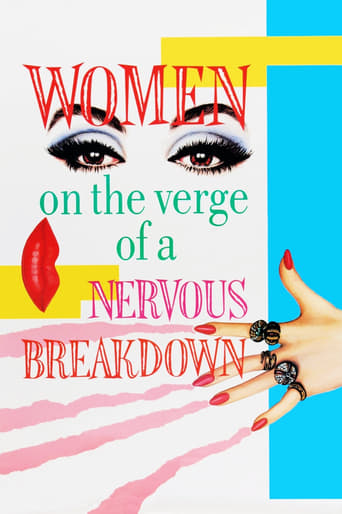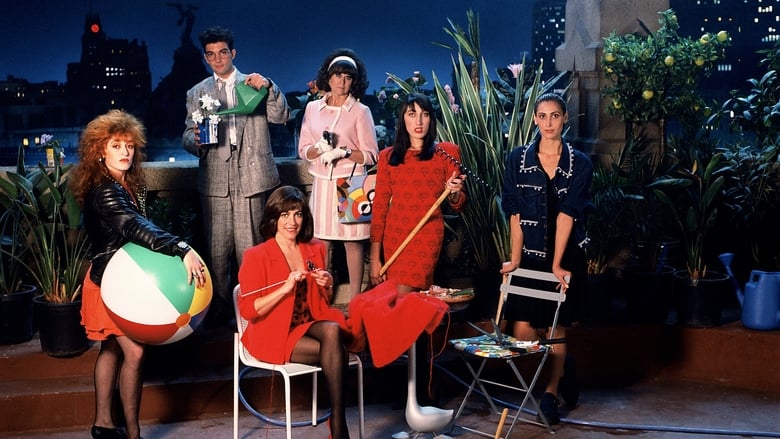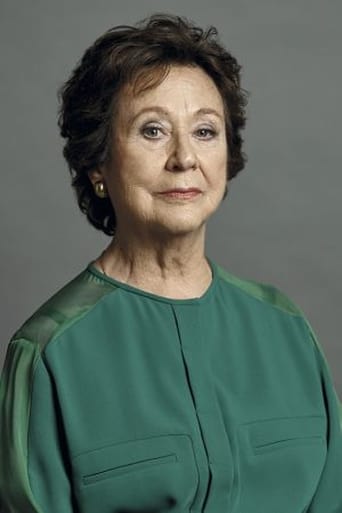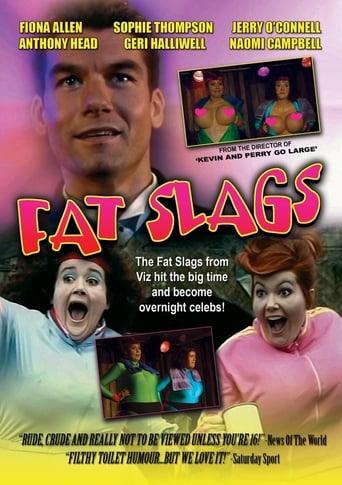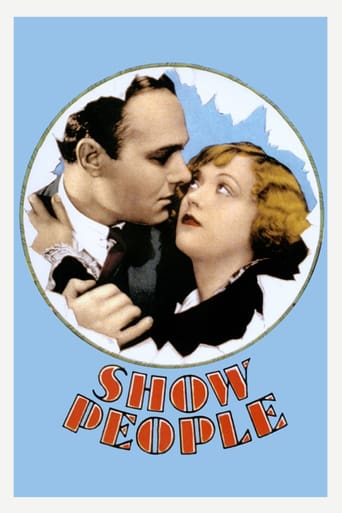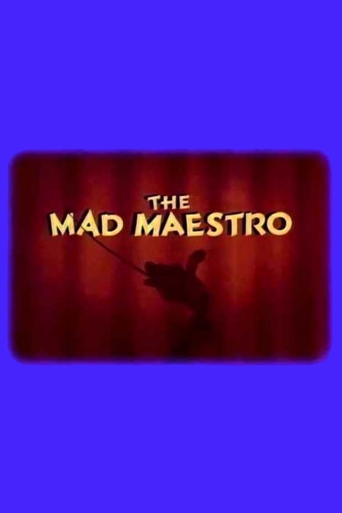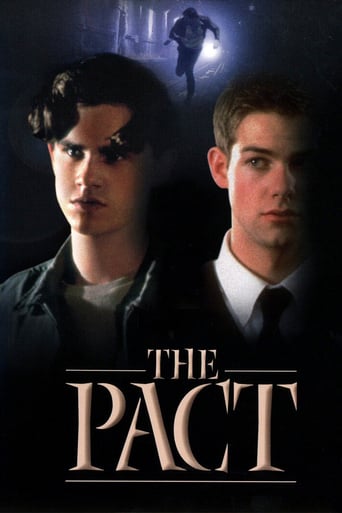Women on the Verge of a Nervous Breakdown (1988)

Pepa resolves to kill herself with a batch of sleeping-pill-laced gazpacho after her lover leaves her. Fortunately, she is interrupted by a deliciously chaotic series of events.
Watch Trailer
Cast


Similar titles
Reviews
The title released Almodóvar name worldwide, today remains one of his most acclaimed films. After directing some of their stories underground as "Laberinto de pasiones" (1982) o "Entre tinieblas" (1983), Almodovar line again ¿Qué he hecho yo para merecer esto? (1984), a type of comedy of manners with good scripts, and full of great intrepretaciones scenes that verge on surrealism. The actress Carmen Maura and Maria Barranco are the best in the film, though we must not forget the roles to Julieta Serrano and Fernando Guillen-Cuervo. This title is highly recommended for fans who want to view and retrieve the kitsch/pop Almodovar, the most colorful and most natural to tell stories.
Great fun, as Almodovar's visual sophistication continues to expand from film to film, and his ability to create a subtle mix of the campy, the surreal, and real emotion grows ever stronger. Full of odd and silly twists and turns, and populated by absurd but still very human characters. It's also a film with a theme - the amazing strength and resilience of women. So why not a 10 star rating for a film a lot of smart people consider a flat-out masterpiece?. Maybe I need to re-see it a third time, but on recent round of working my way through all of Almodovar's films it felt paper thin. I enjoyed it, but it didn't feel like a film that would stick with me, or effect me. In some ways, I found the far more flawed 'Matador' has more unforgettable images, moments and challenging power. That said, this is still very worth your time.
Every true artist trusts, to more or less extent, in his intuition. There are those whose magic lies almost entirely in the choices they make out of intuition. It's marvelous to be able to trust someone's intuition (even more when our own intuition works). Than we have those who start over a rational basis, and only after creating a safe net on which they can trust do they put something of their deep feelings over it. I think this second definition suits the vast majority of creative minds. For a long time i thought Almodóvar belonged to the first kind of director. After seeing this film i definitely place him in the second kind. For an uninformed viewer, such as i was when i got into the world of Almodóvar's films, he can look as if there was no specially recognizable structure underneath what you get. My recent viewings of some of his films convinced me otherwise, this one specially. This is a film in which (unlike his other films) the mechanics of the story has to do with how facts unfold. It's comedy alright, and it builds a world of linked coincidences and facts that always come to be important, further in the story.So we have a narrative made of coincidences, circular stories, and intersections. The first 5 or 6 minutes of the film (including the initial credits) are specially marvelous in the way we get to see this. We have a pop montage of magazine cuts, pieces of lives, faces, coloured bits. This introduces us to the pace of the film, which is frantic in comedy sense (this shows through the story, not the editing). Than we have an introduction to our central character, around which everything revolves: she dubs films, which means she lends her voice to other bodies. She was (we come to understand) the lover of a man who does the same. And we get a marvelous piece of film, in which we follow our voice off dubbing, and the film she is dubbing, already with the translated line. She is dubbing alone, the male voice is silent. This is exquisite work. A fantastic scene. It got me into the mood, i thought. This because we are deceived by this first scene. Next to this, it turns to a comedy environment (tracking American screwball comedies, this is assumed by Almodóvar).The major cinematic concerns in every film by Pedro Almodóvar is on working narrative in ways that are new, seductive, and visual. All his films (specially those of the 80') were pure experiments, completely different from the previous one. There, Pedro was more attached to a certain mood, a certain psychedelic way of living, certainly derived to his experience inside the Movida, Madrid's underground of the 70'. Nevertheless he was already trying build new cinematic narrative forms. There is a certain aspect that happens in all of his films, despite the differences between them: he likes the idea of having actors whose characters perform. Actresses playing actresses, characters pretending to be something else. His narrative mood has really much to do with this. Here he is very intelligent in the depiction of this aspect. The first scene i mentioned establishes this, the mad mother who pretends to be sane in order to fulfill her madness does it, and the film has an unfolding moment in a scene where everybody is acting and lying to the police. Near the beginning, the mad woman (who pretends to live 20 years before her time) says to her father: "You lie so well, dad! That's why i like you". Almodóvar wrote the script...The flaw here is that everything is mechanic. This development through circular coincidences, and a hidden plot that comes to unfold and reveal us the truth is not exactly in line with the best visual efforts of Almodóvar. I think he knows that, he even stated that this script was a lot easier to write than that of, for example, Kika (a lot more implicit in its narrative content). So, narratively, this IS Almodóvar, but not his best. But it has beautiful strokes, underlined intentions, and i will take those first minutes with me wherever i go.My opinion: 4/5http://www.7eyes.wordpress.com
MUJERES AL BORDE DE UN ATAQUE DE NERVIOS is, from its classic opening title sequence in which Lola Beltran belts out her powerhouse ranchera ballad "Soy infeliz" to a montage of pictures taken from women's fashion catalogues to its appropriate closing with La Lupe (a gay icon herself in Latin America) singing her diatribe, "Puro Teatro", a perfect parenthesis that encapsulates a gay man's wet dream: the assortment of strong femininity, filmed to the beat of a potboiler, seen through the eyes of Douglas Sirk, and the heart and essence of farce taken to its limits. Seeing Almodovar's comedic masterpiece is not enough: it has to be savored like the fine wine it's become as it approaches its twentieth year from when it first exploded into theatres and rocked Spanish cinema to its core. Quite frankly, this is the greatest screwball comedy ever filmed, and for a genre created in the United States, this one trumps even Preston Sturges in sheer craziness that just builds upon momentum until it veers out of control.As a matter of fact, television audiences who follow the satirical "Desperate Housewives" should make an effort to see Almodovar's WOMEN ON THE VERGE OF A NERVOUS BREAKDOWN and appreciate the genius run amok during the approximate 90 minutes it takes to tell its frantic story. It's the only real way to appreciate what goes on ABC's hit show. From the moment our heroine, Pepa (Carmen Maura, in a role that has defined her career) awakens from her slumber and frantically runs to the phone to get that hungrily awaited phone call from Ivan (Fernando Guillen) who has abandoned her and faints in the middle of dubbing Joan Crawford as Vienna in JOHNNY GUITAR, as she crosses paths with the scared Candela (Maria Barranco), the lunatic Lucia (Julietta Serrano), anal Marisa (Rossy de Palma), and feminist Paulina (Kiti Manver) during the course of two days, we're in the same league as the five women of "Housewives." They might even serve as parenthetical bookmarks due to the twin nature of women in the throes of despair pushed to the extreme. This is, as a matter of fact, what THE WOMEN would have looked like had it been filmed fifty years later. Less stagy than Cukor's film but no less effective even when it pokes good fun at artifice, camp, and itself, WOMEN ON THE VERGE OF A NERVOUS BREAKDOWN is smart, witty, ferociously funny and oddly touching -- a tough thing to do in comedies. It marked the movie which brought Pedro Almodovar to international fame, such that MATADOR was re-released in order to bring its equally bizarre story to the public who had discovered a wunderkind in the avant-garde director. For years, plans for an American remake floated about and actresses names were on a continuous shuffle. Thankfully, the idea has not come through and audiences can enjoy this very Spanish, very quirky movie in its original form and see why the term "Almodovarian" exists in cinema today. This is what started it all, proper.

